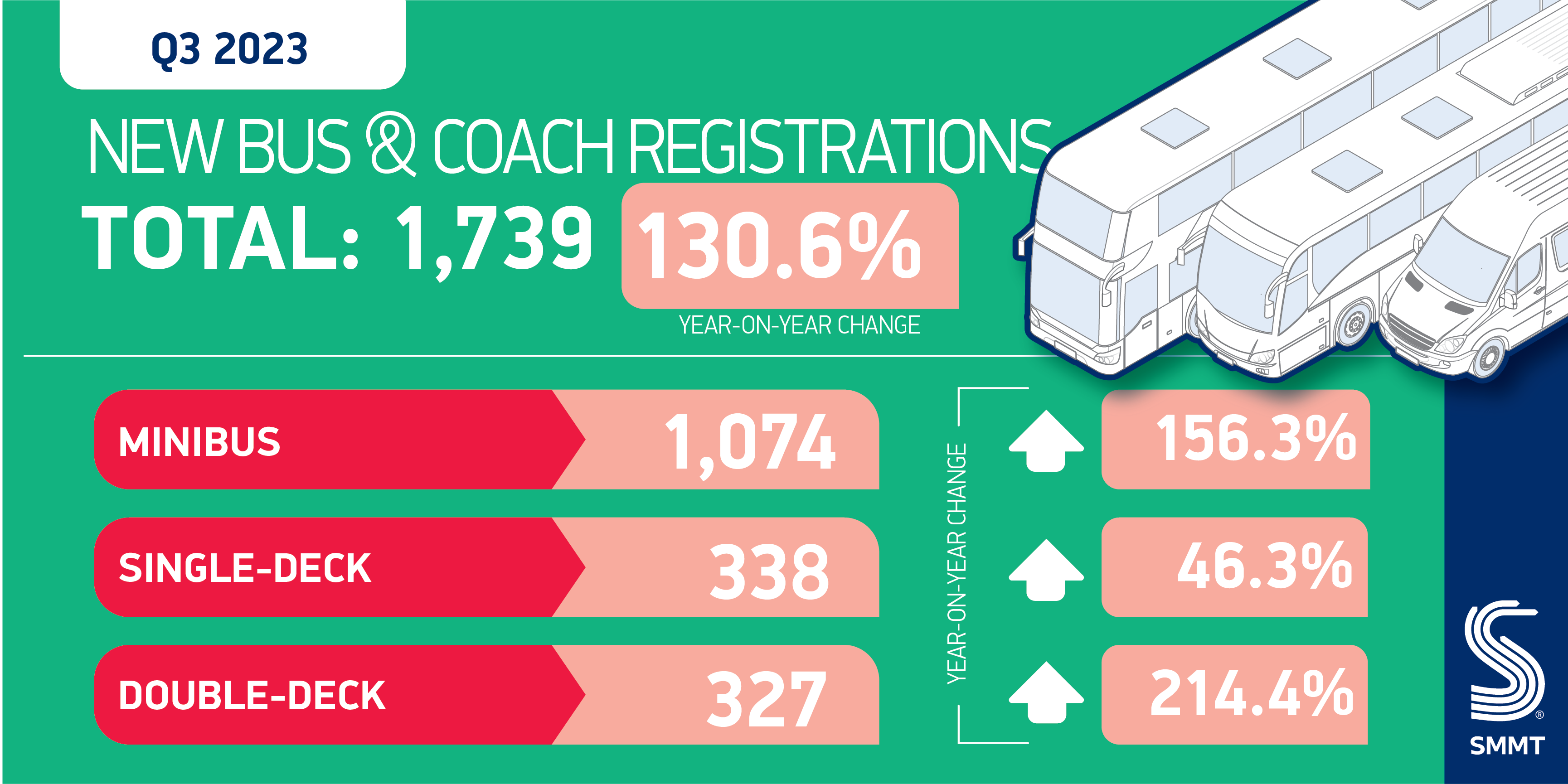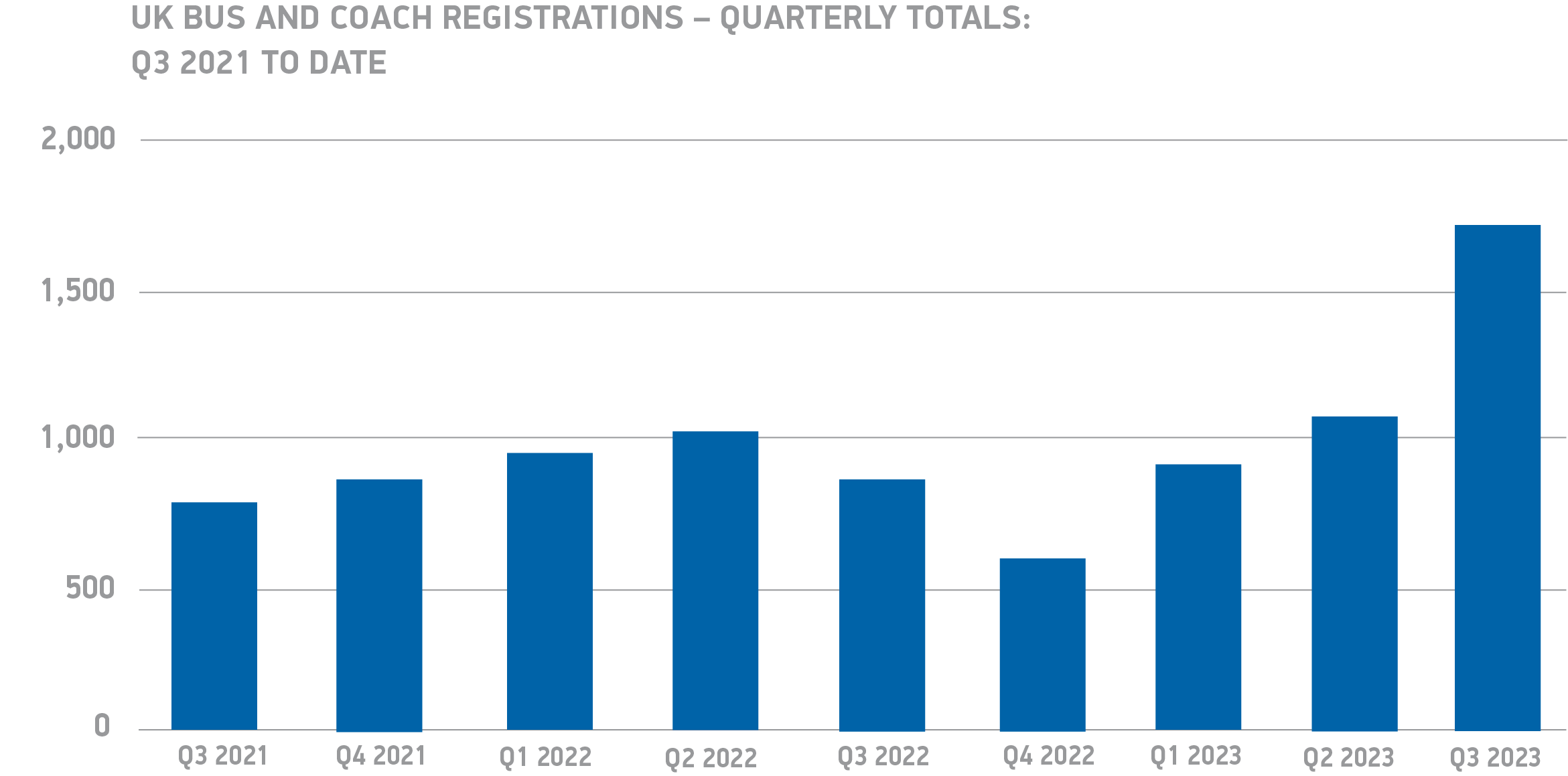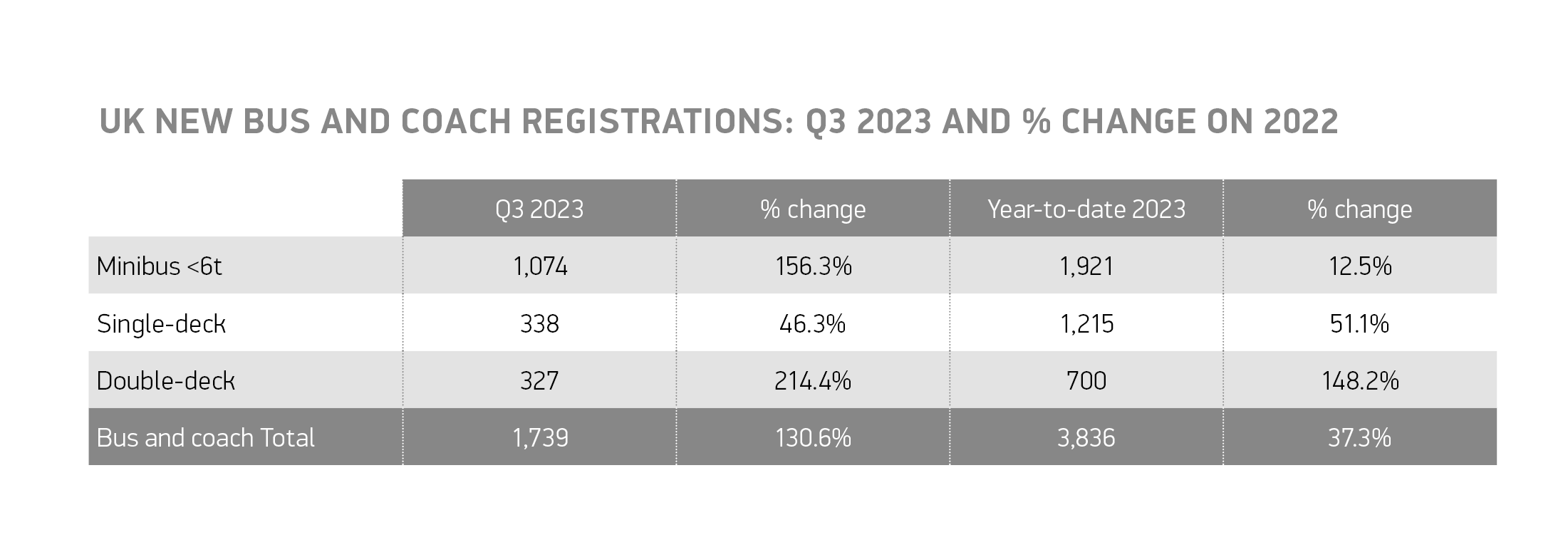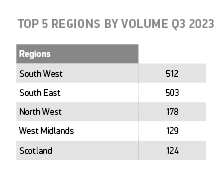Q3 2023 Bus & Coach Registrations
Q3 2023 Bus & Coach Registrations
Britain’s best summer for bus and coach fleet renewal since 2019
- UK operator demand for new buses, coaches and minibuses more than doubles in Q3 2023, up 130.6%, with 1,739 vehicles joining Britain’s road transport network.
- Second successive quarter of growth with rising uptake of double and single deckers, up 214.4% and 46.3% respectively, but demand is driven by minibus registrations, up 156.3%.
- As ridership levels return to pre-pandemic levels, opportunity arises for sector to drive mass green mobility – but some regions will miss chance for latest Zero Emission Bus Regional Area funding.





Thursday 16 November, 2023
Britain’s new bus, coach and minibus market grew by 130.6% in the third quarter of 2023 with 1,739 vehicles registered, according to the latest figures published today by the Society of Motor Manufacturers and Traders (SMMT). Operator demand more than doubled compared with the same quarter last year,1 as passenger levels return to pre-pandemic levels for the first time2 – providing a confidence boost for UK road transport services looking to replace their older vehicles. The July to September period saw the greatest demand of any quarter since Q4 2019,2 with more of the latest, greenest models joining roads in towns and cities across Britain.
Growth was driven primarily by deliveries of minibuses, up 156.3% to 1,074 units – representing 61.8% of the market – following a dip in demand in Q2 due to supply disruptions. Single deckers, meanwhile, rose by 46.3% to 338 units, and double deckers by 214.4% to 327 units. It means some 3,836 new units have been registered in 2023, the greatest demand from January to September in the last four years.3
The return to 2019 ridership levels is positive, but new vehicle demand this year still remains -43.1% below the 2016 peak.4 With the sector currently on an upward trajectory, amid huge OEM investment in the net zero transition to deliver 14 electric or hydrogen models to market, the sector is well placed to deliver the benefits of mass green mobility. Such opportunities include an improved passenger and driver experience, better local air quality, more regular services and reduced noise pollution – but these depend on increased vehicle uptake and the installation of depot charging infrastructure, which often require significant investment and improved grid connectivity.
As just 17 out of 48 regions in England made successful bids in the first round of Zero Emission Regional Bus Area (ZEBRA) funding, the launch of the second round in September is another chance to drive green fleet renewal. The application process must be simpler and smoother, however, else some regions of Britain that are ready to decarbonise will again miss the chance to drive the UK’s ambitious rollout targets via the latest, greenest buses. At the same time, the allocation of round one funding to successful bidders must be more timely, so regions that have planned for decarbonisation can more quickly deliver affordable, widely accessible zero emission mobility in our towns and cities.
Mike Hawes, SMMT Chief Executive, said,
Britain’s bus and coach sector has done the double, with new vehicle demand twice that of last year, resulting in two successive quarters of growth. As the sector exceeds pre-pandemic levels, it is now in a strong position to deliver green growth and tangible benefits for local communities. Operators want to invest in zero emission fleets but action is needed, in particular to ensure that ZEBRA funding reaches all regions in a fair and timely manner – speeding up decarbonisation and improving services up and down the country
Notes to Editors
1 Q4 2019: 1,889 units.
2 Confederation of Passenger Transport, Bus passenger levels surge to highest in three years.
3 2019 Q1-Q3: 3,985 units.
4 Q1-Q3 2016: 6,741 units.
File Downloads
- Q3 2023
Q3 2023

Comments are closed.